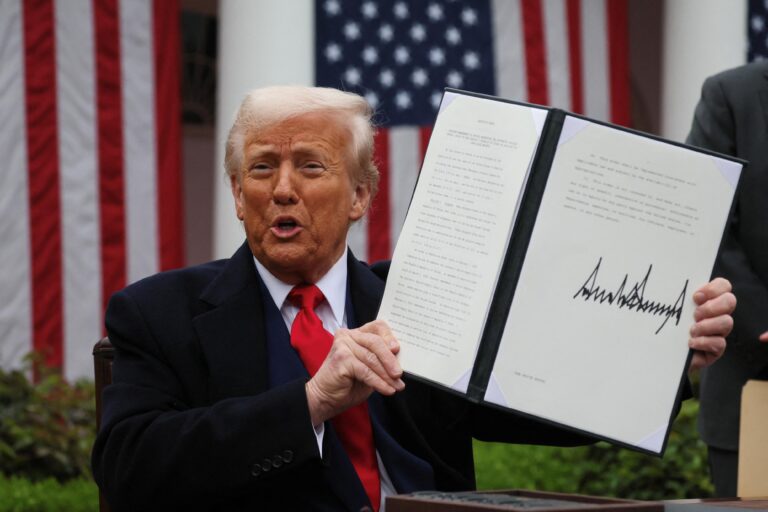Impact of Tariff Labeling on Canadian Consumer Choices
In a notable development that illustrates the influence of global trade relations on consumer habits, numerous retailers across Canada have started to mark U.S. imports with a conspicuous “T” label. This initiative aims to inform shoppers about the additional tariffs imposed on these products. As ongoing tensions between Canada and the United States continue to shape economic conditions, many Canadian consumers are increasingly opting for local alternatives, driven by both financial considerations and a growing sense of national pride. This article delves into the ramifications of these labeling practices and examines the rising preference for homegrown products among Canadians.
Tariff Labeling Initiative by Canadian Retailers
As trade disputes escalate between Canada and its southern neighbor, several retailers in Canada have proactively addressed consumer apprehensions regarding the costs linked to U.S. imports. By implementing tariff labeling, these businesses aim to enhance awareness about extra charges associated with specific items. Each product marked with a prominent “T” indicates that additional fees apply due to tariffs, effectively making consumers more aware of how these economic factors influence their purchasing choices.Shoppers appreciate this level of openness, leading an increasing number to choose Canadian-made options that circumvent such added expenses.
The introduction of tariff labels has ignited both interest and discussion among buyers. Consumers are now actively seeking out goods that not only offer competitive pricing but also come without tariff-related costs. Retailers are responding by highlighting the advantages of selecting locally sourced products. Notable trends emerging from this shift include:
- boom in Local Brand Sales: There is a noticeable increase in demand for Canadian brands as shoppers embrace patriotic purchasing behaviors.
- Sensitivity Towards Pricing: Consumers are becoming more vigilant about prices, searching for affordable options that maintain quality without incurring tariff fees.
- A Focus on Consumer Awareness: The labeling initiative serves as an educational tool regarding trade policies while promoting informed buying decisions.
Domestic Product Preference Amid Inflationary Pressures
The ongoing rise in living costs has prompted many Canadians to favor locally produced goods over imported ones. This trend is considerably influenced by financial pressures stemming from tariffs applied on U.S.-made items, fostering greater gratitude for supporting local enterprises. Shoppers now prioritize domestic offerings for several reasons:
- Savings Potential: Products made within Canada typically avoid additional tariff-related expenses, making them more appealing financially.
- Sustainability Considerations: Purchasing local minimizes transportation emissions and supports environmentally friendly practices.
- Pursuit of Quality Assurance: Many consumers view domestic products as fresher and more trustworthy compared to their imported counterparts.
A variety of Canadian retailers are adapting their strategies by clearly marking U.S.-sourced items with a “T” label indicating tariffs; this approach fosters transparency among price-conscious customers . Recent surveys reveal that many Canadians express dedication towards buying domestic goods whenever possible . The table below summarizes consumer preferences concerning local versus foreign products :
Type de produit PrĂ©fĂ©rence pour le national PrĂ©fĂ©rence pour l’importĂ©
>
<> Épicerie < >
<> 72 %< >
<> 28 %< >
<>
<>
<> VĂŞtements< >
<> 65 %< >
<> 35 %< >
<>
 Â>
Â>Électronique>
Â>50%>
Â>50%>
    > Â
 Â
 Â
 Â




